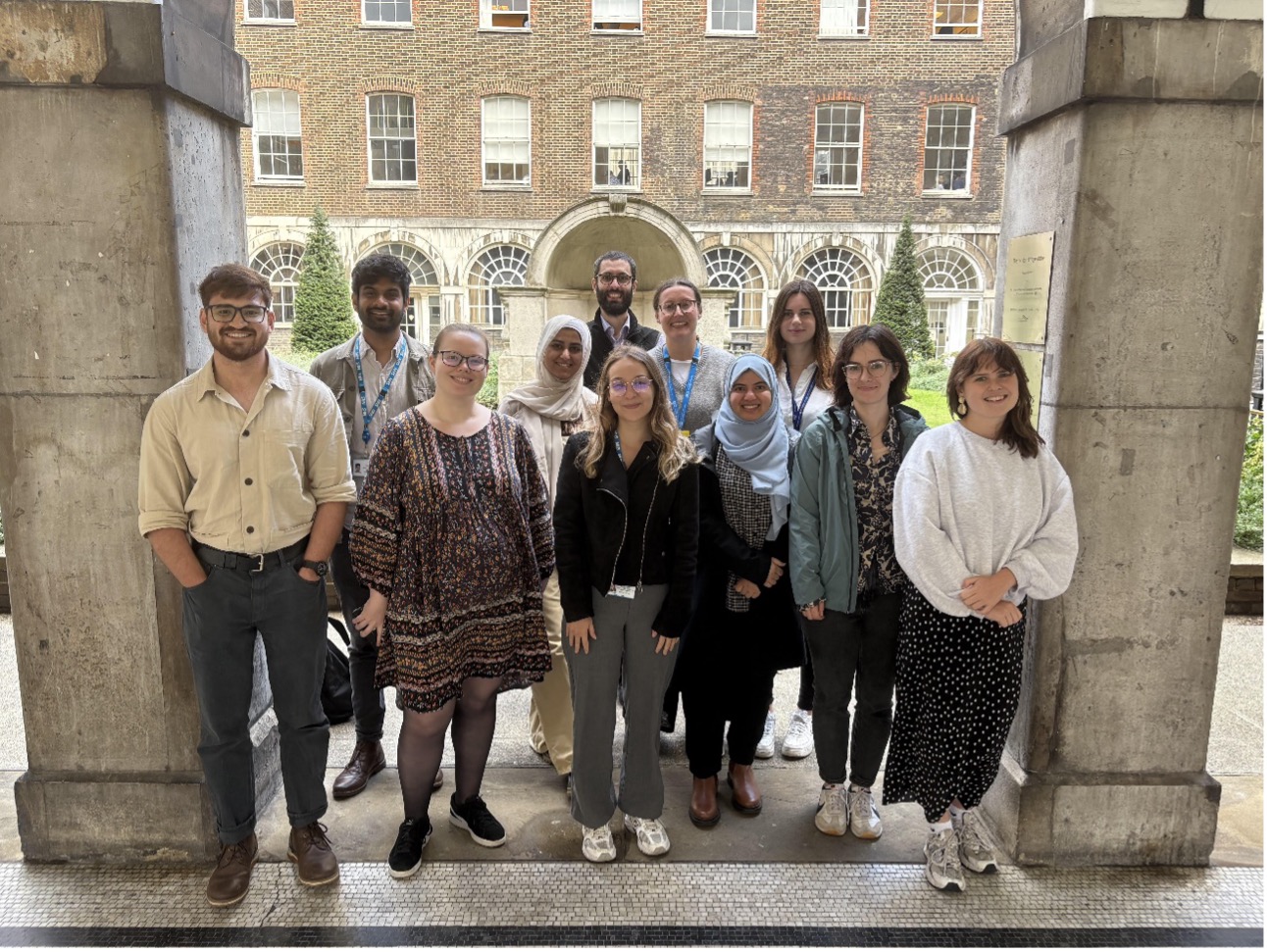
Beatriz Laureano
Trainee Clinical Scientist in Imaging with Non-Ionising Radiation, Guys and St Thomas's NHS Foundation Trust

CSC Elective: Keeping up with the future
18 September 2025
I’ve always been interested in computational practice and software development, and in exploring how new technologies can be applied in healthcare. AI is now integrated into almost every aspect of life, and as a 3rd-year trainee clinical scientist my particular interest is in how it can transform medical and clinical practice. As the world evolves, I’ve been keen to understand how, from a technical and computational point of view, the NHS is keeping up with these advances, and how we can shape services to take advantage of these opportunities.
Even before the STP, I was coding, building websites, writing analysis scripts, and later in the STP contributing to automated QA projects. But within my department there wasn’t much appetite to really drive these approaches forward, especially after Molly left (big shoutout to her, her interest and skill in computing is very missed in MRI!). So, for my elective, I joined the CSC team to learn how they are modernising clinical care, what benefits their projects bring to patients, and to develop my own technical skills.
From day one, the CSC welcomed me with open arms. I met incredible, motivated people and learned a huge amount, all while having fun. Having Elise as a mentor made all the difference: despite her heavy workload, she always made time to help (and, importantly, let me into buildings I didn’t have access to!).
One of the biggest highlights was the AutosegCT project, an AI-based contouring tool for radiotherapy planning. Contouring organs at risk can take radiologists 30 minutes per patient, but with Autoseg that time is drastically reduced, freeing clinicians to review more cases. If you’ve ever reflected on the patient journey, you’ll know how real and scary backlogs are. It was impressive to see how AI can tackle such an ingrained challenge in the NHS, helping more patients start treatment sooner. Through shadowing and conversations regarding this project, I also learned more about AI pipelines from dataset curation to training and validation. My knowledge is still basic, but far deeper than when I started. I also saw colleagues achieving incredible things, like Mike deploying an AI model for tumour contouring in under two weeks, something almost unheard of in healthcare, and a testament to the drive and expertise within CSC.
I also got to see the breadth of CSC’s work. In one project discussion, the team explored collaborating with Nuclear Medicine to develop a tool to give personalised advice to patients following radionuclide treatments, potentially allowing them to leave hospital earlier. This struck me as a perfect example of how technology can not only make the NHS more efficient but also improve patients’ quality of life.
Beyond specific projects, I was impressed by how wide CSC’s impact is. From creating open-source QMS templates (making Anil an instant LinkedIn star) to running their AI Summer School, to hosting thoughtful discussions around AI fairness, their commitment to innovation and education is clear. The fairness session really stuck with me: the conversation extended into rationing in healthcare and raised questions about ethics and decision-making that go far beyond technical implementation. Overall, I was very impressed with how the people at the CSC are unafraid to challenge ideas, ask questions, and push boundaries.
I also contributed to their QMS audit automation project on GitHub. The idea was to automate checks against KPIs, and my role was to help build a Python tool that pulled data using the GitHub API and generated results as a clear Markdown report the team could easily review. It was my first proper experience collaborating on a computational project as part of a team as before this, it had always been just me vs. the task. I was genuinely proud to have built something practical that others will actually use. And on a personal note: I’m no longer intimidated by GitHub or worried about “breaking” the code every time I make a pull request!
I’ve taken so much from this elective: technical skills, confidence with tools like GitHub, and a fresh perspective on how clinical scientists can drive innovation. Just as importantly, I’ve gained an appreciation for CSC’s openness, teamwork, and curiosity. I’ve already started sharing their expertise with my own department, encouraging colleagues to embrace computational approaches rather than shy away from them.
As I move forward in my career, I’ll carry this mindset with me. This experience has reinforced my belief that AI and computational science aren’t optional extras, they are essential components of future clinical practice. But they must always be developed and applied with the patient at the centre: improving outcomes, reducing delays, and ultimately enhancing quality of life.
Computational tools, Automated Scripts and AI features are likely, in my opinion to continue to be embedded in all clinical specialisms across the NHS. And whether your background is physics, physiology, or computing, clinical scientists need to understand these tools to use them effectively and to drive innovation further. If you’re a clinical scientist, or even just curious about the future of the NHS, I would 100% recommend learning from the brilliant people at the CSC.